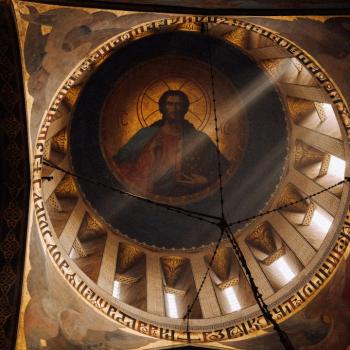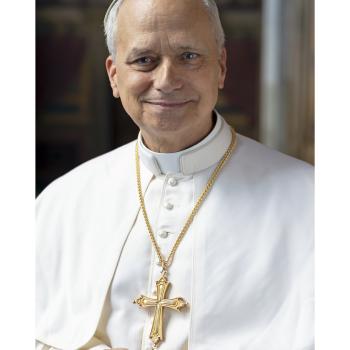Secularism has made great inroads in American society, to the point that when a Catholic sports figure praises traditional values at a small Catholic college commencement, he somehow becomes the center of a media firestorm. The great risk is that dialogue will be the ultimate victim.
Benedictine College is a small Catholic college known to have students who espouse traditional values, so it makes sense that the invited commencement speaker would share those same values. The secular media has focused on a few points, yet the wider discussion should focus on Kansas City Chiefs’ kicker comments about Harrison Butker’s criticism of unhealthy Catholic culture, hypocrisy of Catholic politicians, and poor leadership in the Church.
The risk of the secular focus on alleged misogyny and unwoke statements is that a larger and much more profitable conversation among Catholics about deeper issues will be ignored. It has already caused a lot of consternation in the secular press. It should also cause waves, however, in Catholic circles. As Catholics, we should be asking ourselves: what should we keep and what should we reject from what Butker says?
First Criticism of the Speech
As great defenders of secularism, it is unsurprising that the NFL and media outlets began to attack Butker’s critical speech almost immediately.
The NFL is distancing itself from controversial comments by Kansas City Chiefs kicker Harrison Butker during a recent commencement address. In addition to calling Pride Month a “deadly sin” and bemoaning diversity and equity initiatives, Butker set off waves of criticism when he suggested that women find more fulfillment through getting married and having children than by pursuing careers (AJ Willingham, CNN, “Backlash over NFL player Harrison Butker’s commencement speech has reached a new level”).
Besides mischaracterizing Butker’s statements, this CNN reporter failed to mention that most of this list went over well with Butker’s audience (when he spoke about motherhood being a high ideal for women, the ensuing applause lasted 18 seconds). The secular news outlets will analyze things as they will, but for us it is perhaps more valuable to examine his speech in its proper context.
Being Brave
Butker talked about the need for men to be brave and stand up to shape culture. As he is living in a way that goes along with his professed values, him saying this really should not be much of a news story. As Ben Shapiro correctly summarized why none of this was scandalous, he was merely a Catholic talking about Catholicism at a Catholic College.
Because he is Catholic, and he gave a 20-minute commencement speech at Benedictine College, which is Catholic, in which he talked about Catholicism (Ben Shapiro, “NFL Kicker SLAMMED for Defending Christianity”).
Butker does not attribute to himself authority that he does not have, nor does he misrepresent the faith. Of course, people will have different opinions about the prudence of some of his statements, but the media backlash seems disproportionate. Some of his statements about the Catholic Church, however, merit further review.
A Hidden Church – A Polite Church
It is clear that Butker has sinned in the eyes of the Church of Secularism by stating that Catholicism should have a significant cultural impact. It is more comfortable for the elites if Catholic priests and bishops merely sit back and watch culture deteriorate without making any moral assertions.
As members of the Church founded by Jesus Christ, it is our duty and ultimately privilege to be authentically and unapologetically Catholic. (Harrison Butker, Benedictine College Commencement Address, 2024).
Butker cites the example of the movie Silence, an interesting film about persecution of Christians in Japan in which one of the protagonists seems to commit apostasy, then has a reversion known only to him and God. The world is much more comfortable with a religion that is entirely private and has no impact on society. Butker reminds the students that the Church has always been countercultural and must continue to be so if it is going to fulfill its mission in the world.
With this statement, he echoes the Second Vatican Council with the desire that the laity make a difference in the world.
[Laypeople] will imbue culture and human activity with genuine moral values; they will better prepare the field of the world for the seed of the Word of God; and at the same time they will open wider the doors of the Church by which the message of peace may enter the world. (Lumen Gentium, 36).
If the Catholic Church focuses on being polite, it risks adhering to a political agenda rather than an evangelistic agenda.

Demanding Better Witness From Priests
Butker challenges the clergy effectively. He reminds them that they are called to be fathers and should not be fall into the
temptation to imitate laypeople, but to be priests through and through. Tragically, so many priests revolve much of their happiness from the adulation they receive from their parishioners, and in searching for this, they let their guard down and become overly familiar. This undue familiarity will prove to be problematic every time, because as my teammate’s girlfriend says, familiarity breeds contempt (Harrison Butker, Benedictine College Commencement Address, 2024).
It is not surprising that Taylor Swift fans responded negatively to the veiled reference to their idol in a speech that does not fit the ‘Swiftie’ storyline. However, it should be seen as a nod to pop culture and more attention should be given to the criticism that he is making about priests who confuse their role as shepherds instead of striving to be light in the world.
A Call for Leadership
The critical tone he casts upon Catholic leaders is clear, even if harsh. He begins by criticizing the President for proclaiming his Catholic faith while also promoting values diametrically opposed to Catholic doctrine. He mentions that our nation
is led by a man who publicly and proudly proclaims his Catholic faith, but at the same time is delusional enough to make the Sign of the Cross during a pro- abortion rally (Harrison Butker, Benedictine College Commencement Address, 2024).
Disappointed with the “Catholic leadership” of the President and others, he goes on to ask bishops to speak up when popular culture goes down a road contrary to Church teaching. He notices a tendency to become too political, preferring to cater to the interests of the political establishment rather than speaking up according to Gospel values.
The secular media have decided to look at Butker’s speech and focus on how it departs from the approved ‘script’ concerning inclusion and gender roles. However, within the Church, we should feel rightfully challenged by his statements. Perhaps we disagree with some of his proposals, but we should at least listen to what he is saying. It is important to look at the “traditional Latin mass” movement objectively and recognize possible dangers as well as the motivations behind it. What does the Church teach about gender roles? How can this enrich our culture? Listening to distinct views such as those held by Harrison Butker is part of being a synodal Church.
What do you think? Comment below.
Subscribe to the newsletter to never miss an article.
















